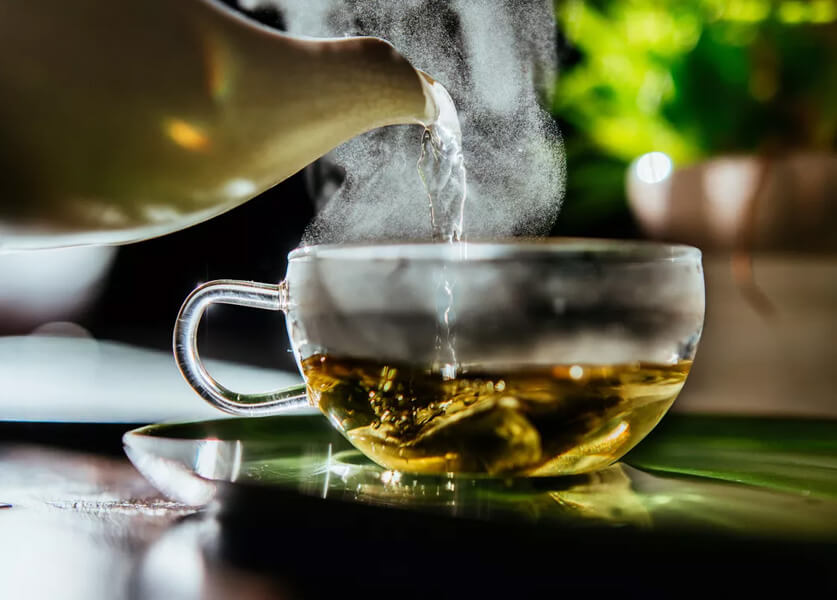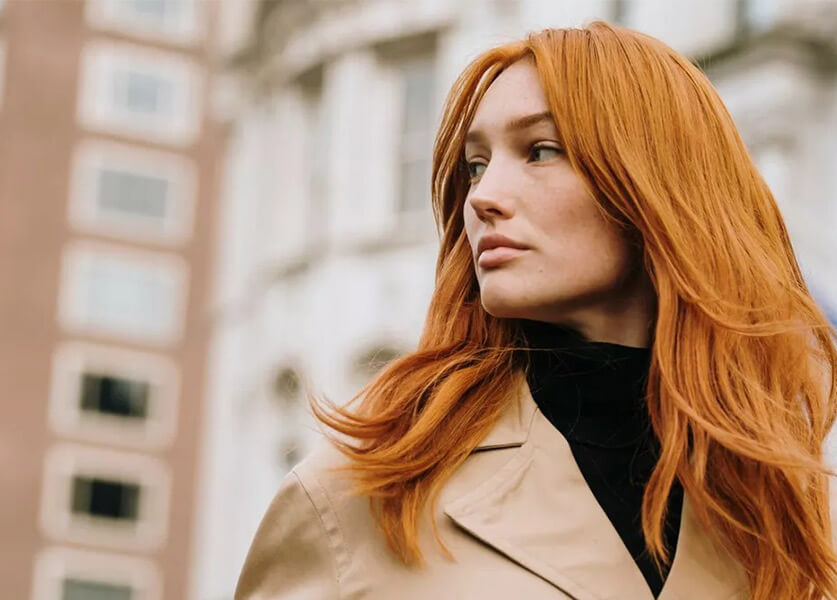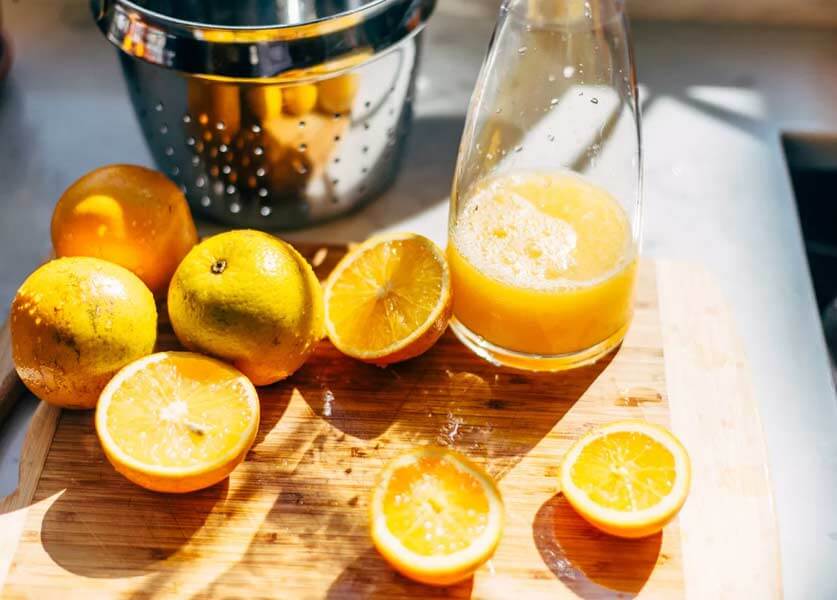LIFESTYLE
The Question of Nighttime Herbal Teas: Do They Really Aid Sleep?
Tiphaine Honnet - Madame Figaro
15-March-2024

Drinking a herbal infusion before bed in the hope of falling asleep more easily is a common practice, but does it genuinely have a soporific effect? An analysis by three specialists.
A "gentle," "calm," "peaceful" night - that’s what evening herbal teas promise, according to some supermarket tea packages, presented as true allies of sleep. As a pure product of phytotherapy, these drinks contain various aromatic plants whose active principles are believed to facilitate falling asleep and prevent nighttime awakenings. But what is the reality?
It would also be interested to have a look at our article Rethinking Orange Juice at Breakfast.
Limited Scientific Evidence
Hops, orange blossom, chamomile, verbena, lavender, marjoram, passionflower, lime blossom - these plants are included in most of our tea bags, yet so far, no rigorous scientific study has proven their effectiveness on sleep, explains Nicolas Authier, a psychiatrist and pharmacologist. “No reimbursed sleep medication has been developed from these substances because there is insufficient evidence. The herbal tea, like all other phytotherapy products, is based on observational studies, not true scientific evaluations.”
The most advanced clinical trials, albeit with “very low levels of evidence,” focus on lavender, Eschscholzia (California poppy), and valerian, notes Patrick Lemoine, a sleep specialist psychiatrist. “It's suggested that these plants might stimulate the activity of gabaergic neurotransmitters, also called GABA. These play a role in our nervous activity and 'slow down' our brain, which can contribute to falling asleep,” the doctor reports.
However, the most studied plant, valerian, with “very moderate efficacy,” has a significant drawback - it “really smells like feet,” we learn from Professor Pierre Philip, head of the university sleep medicine department at Bordeaux University Hospital. One must be quite motivated to consume it in its raw form.
Placebo Effect
If the active ingredient of the tea does not affect the quality of our nights, healthcare professionals do not dismiss a potential “placebo effect.” “If the consumer is more responsive to the natural character of the plant-based products, they may believe more in their effectiveness,” observes psychiatrist and pharmacologist Nicolas Authier. This is particularly the case with CBD teas, which have become popular among those struggling with sleep. “Its anxiolytic action has not been demonstrated, especially at the low doses found in teas. Here, the placebo effect works for some, as it is reinforced by the ‘well-being cannabis’ marketing,” the health professional emphasizes.
In addition to this placebo effect, it's essential to remember that the evening infusion is part of a relaxing bedtime ritual. “Drinking a herbal tea, like reading in the living room before going to sleep, is among the calming strategies that can help reduce pre-sleep anxiety, when present,” reports sleep specialist Dr. Pierre Philip. “By ritualizing this moment, it's possible to create a reassuring cognitive attachment. In the long term, it's mostly consumed for reassurance,” continues Nicolas Authier.
However, if the placebo effect works, it's crucial not to rely solely on it, insists Professor Pierre Philip. According to the doctor, the tea might work for the first few nights but remains a temporary solution. “A recent study shows that 71% of French people complain about their sleep. The reasons include a dramatic increase in sleep disorders since the first lockdown and a massive variation in sleep durations between weekdays and weekends.”
Generally, instead of herbal tea or any other substance, the specialist emphasizes the importance of establishing strict sleep hygiene, such as waking up at the same time every day, including weekends, and implementing non-medical calming strategies like cardiac coherence exercises, relaxation, or sophrology.
Zero Liquids Before Bedtime
Filling our bladder before bedtime can also be a significant disadvantage, causing “nocturnal awakenings,” mentions psychiatrist Patrick Lemoine. As bedtime approaches, it’s essential to moderate the intake of all liquids, including herbal teas and water. Moreover, this issue tends to increase with age. As the psychiatrist explains, “regardless of individual physiology, as we age, the bladder volume decreases, leading to more urgent needs during the night, especially in men.”
Recommended

Hiba El-Khatib Badreddine Opens 2026 with a Groundbreaking Exhibition at Rebirth Beirut
16-January-2026

Celebrate the New Year at Novikov Abu Dhabi
29-December-2025

The 25th Edition of DIAFA Honors the Biggest Names
1-December-2025
Most read
-
1
What Is the New Animal Print Replacing the Leopard in 2026
-
2
Zuhair Murad Ready-To-Wear Pre-Fall 2026 Collection « Indomptée, Indomptable »
-
3
Tony Ward’s Creations at the 2026 Golden Globes
-
4
The Red Carpet of the 2026 Golden Globes
-
5
“MAJESTY”: Ziad Nakad’s Spring–Summer 2026 Haute Couture collection At Château de Vaux-le-Vicomte





